
Tiny Home Regulations in New Hampshire: The Complete Guide
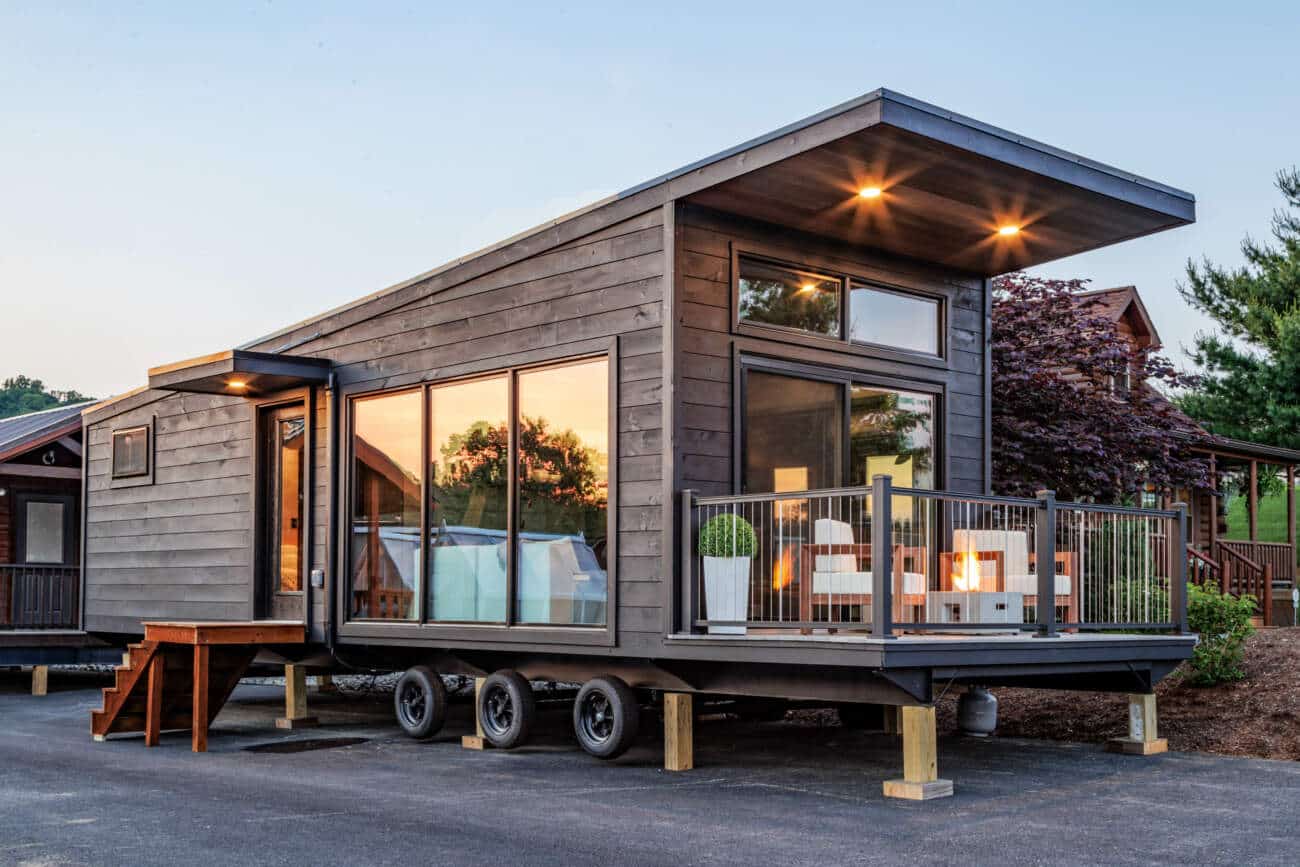
New Hampshire is one of the top states in the USA for weekend getaways, offering countless opportunities for adventure and relaxation. Its endless green forests, pristine air, and picturesque valleys provide the perfect backdrop for your escape.
One of the best and most affordable ways to explore New Hampshire’s natural beauty is by owning your own park model home. If you’ve been considering this option, this article will provide you with everything you need to know about park model homes (Tiny Homes).
Are Park Moels and Tiny Homes the Same Thing?
Yes! All the park model tiny homes that Zook Cabins creates would be considered THOWs. While all of the tiny houses we build are built to RVIA 119.5 standards, another popular certification is NOAH. In our blog RVIA VS NOAH Tiny Homes, you can learn about the differences between the two to see which one fits your needs best.
What Counties in New Hampshire Allow Tiny Homes?
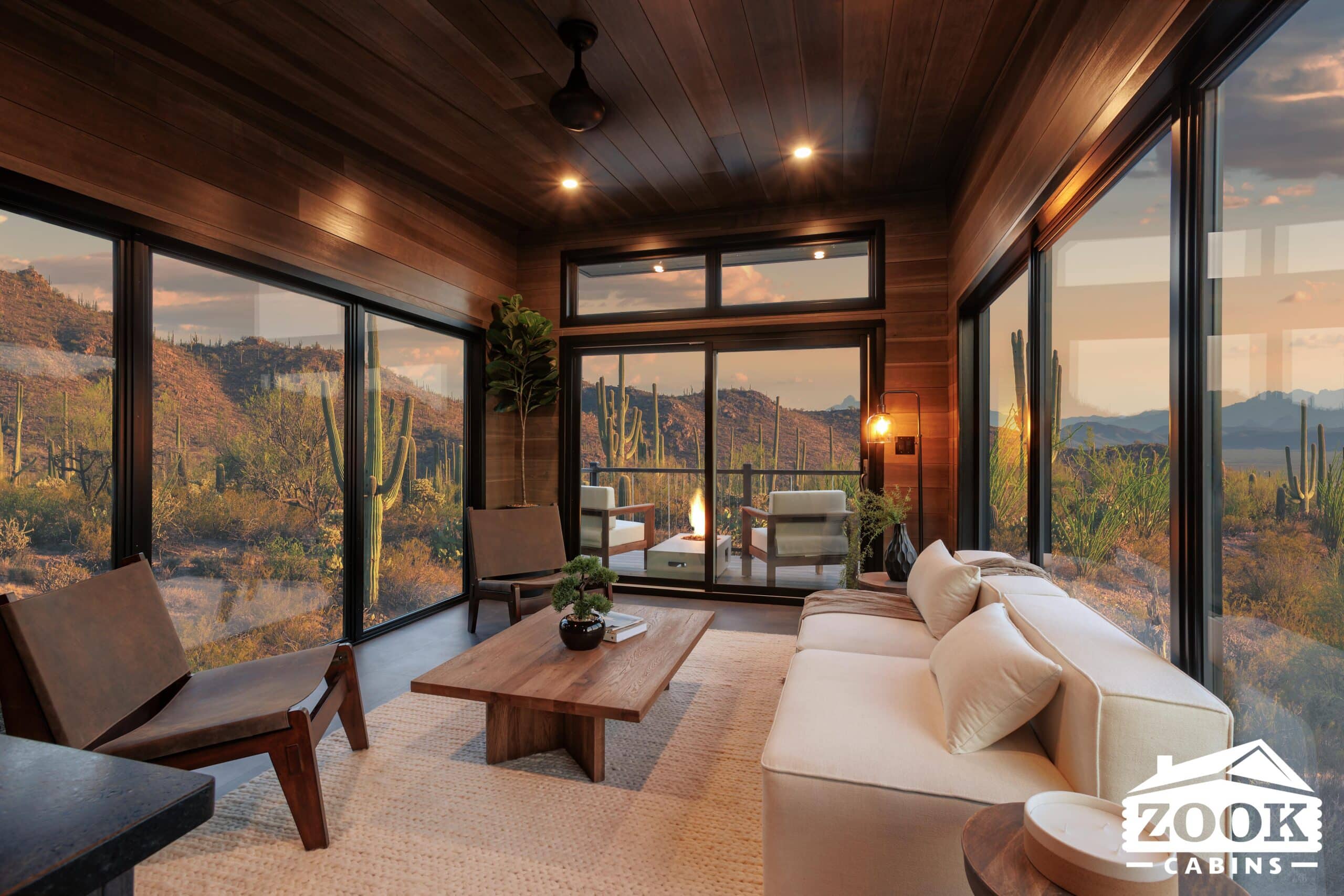
In New Hampshire, park model homes are legal, but their acceptance varies significantly by county and municipality due to local zoning ordinances and building codes. While no state law outright bans tiny houses, the ability to live in one often depends on specific local regulations.
Find Your Tiny Home Regulations in New Hampshire by County
| Belknap County | https://www.belknapcounty.gov/ |
| Carroll County | https://www.carrollcountynh.gov/ |
| Cheshire County | https://co.cheshire.nh.us/ |
| Coös County | https://www.cooscountynh.us/ |
| Grafton County | https://grafton-county.com// |
| Hillsborough County | http://hcnh.org/ |
| Merrimack County | https://www.merrimackcounty.net/ |
| Rockingham County | https://rockinghamcountynh.org/ |
| Strafford County | https://co.strafford.nh.us/ |
| Sullivan County | https://www.sullivancountynh.gov/ |
Does Belknap County, NH, Allow Tiny Houses?
Yes, Belknap County, NH, does allow tiny houses, but with certain regulations and requirements.
Residents interested in placing a tiny home in Belknap County should consult local planning and zoning boards to understand specific rules, including minimum square footage, utility connections, and other zoning considerations.
Does Carroll County, NH, Allow Tiny Houses?
Yes, Carroll County, NH, allows tiny houses.
Carroll County lacks its own zoning ordinance, making it easier to establish tiny homes compared to areas with stricter regulations.
Does Cheshire County, NH, Allow Tiny Houses?
Yes Cheshire County, NH, allows tiny houses, but specific regulations depend on local zoning ordinances. While there is no overarching county-wide zoning law, individual municipalities may have their own rules regarding the placement and use of tiny homes.
Does Coös County, NH, Allow Tiny Houses?
Yes, Coös County in New Hampshire allows tiny houses.
It’s important to note that while Coös County permits tiny houses, potential residents should still check with local authorities for any specific regulations or requirements that may apply to their intended location within the county.
Does Grafton County, NH, Allow Tiny Houses?
Yes, Grafton County in New Hampshire allows tiny houses.
While Grafton County provides a favorable environment for tiny living, potential residents should still check with local authorities for any specific requirements that may apply to their intended location within the county.
Does Hillsborough County, NH, Allow Tiny Houses?
Yes, Hillsborough County, NH, allows tiny houses but does not have a county-wide zoning ordinance.
In this case, tiny house regulations depend on individual town ordinances. If you are planning to get or place your tiny house in Hillsborough, you should check with the specific town’s zoning office for accurate information.
Does Merrimack County, NH, Allow Tiny Houses?
Yes, Merrimack County, NH, allows tiny houses, but specific regulations depend on local zoning ordinances.
While there is no county-wide zoning law, individual municipalities may have their own regulations regarding the placement and use of tiny homes.
Does Rockingham County, NH, Allow Tiny Houses?
In Rockingham County, NH, the regulations regarding tiny houses can vary significantly depending on the specific municipality within the county. For accurate and detailed information, it’s best to contact the specific town or city hall within Rockingham County where you plan to place the tiny house.
Does Strafford County, NH, Allow Tiny Houses?
Each town or city within Strafford County has its own zoning regulations. Some may permit tiny houses as primary residences, while others might only allow them as accessory dwelling units (ADUs).
For precise and up-to-date information, it’s best to contact the town or city hall in the specific area of Strafford County where you plan to place the tiny house.
Does Sullivan County, NH, Allow Tiny Houses?
Yes, Sullivan County, NH, allows tiny houses.
The lack of zoning ordinances in Sullivan County creates a welcoming environment for tiny home owners, reflecting a broader trend across New Hampshire that embraces tiny living. This absence of regulation simplifies the establishment of tiny homes, aligning with the state’s supportive stance on alternative housing options.
Find Your Tiny Home Regulations In NH, By City
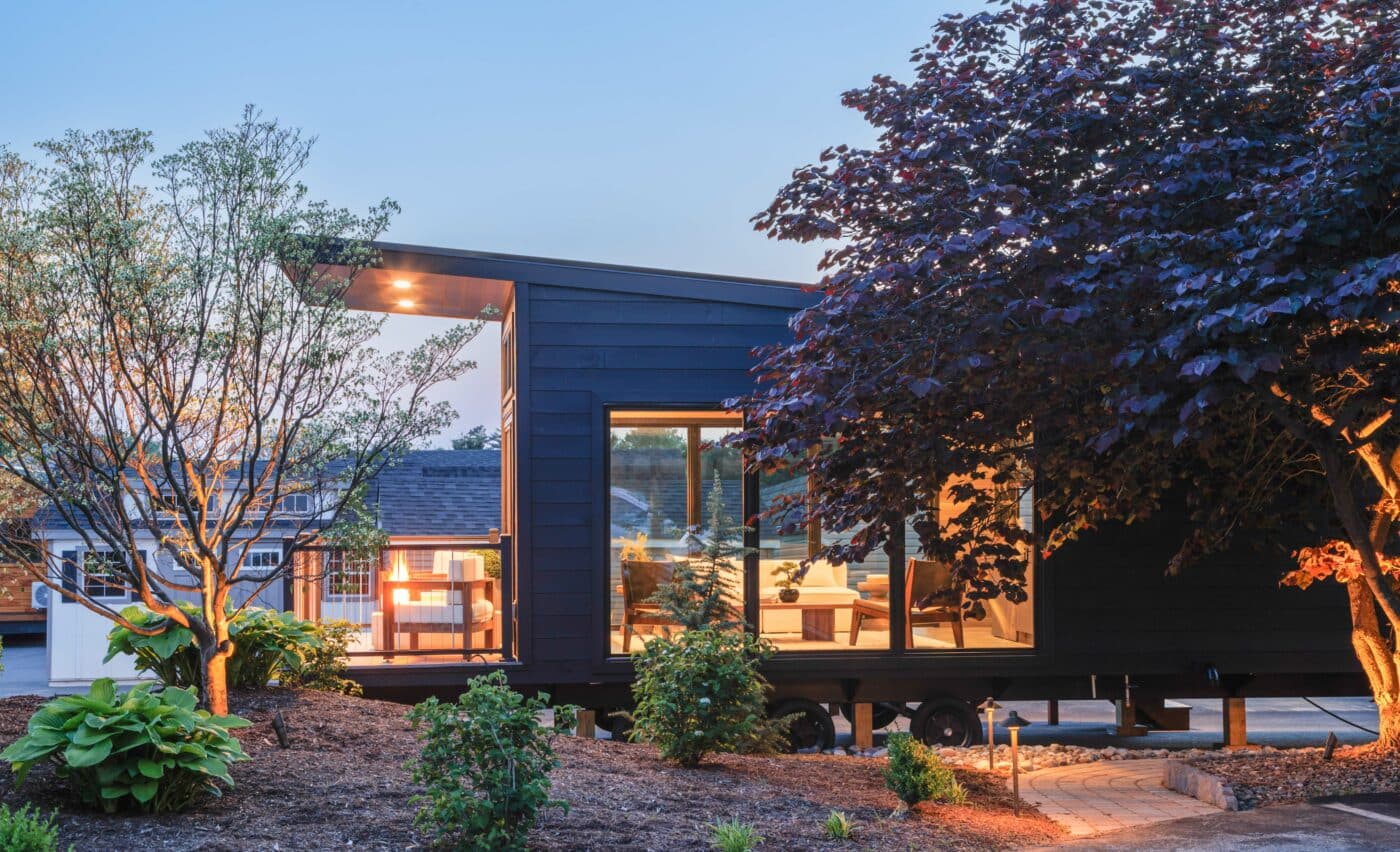
| Manchester | https://www.manchesternh.gov/residents/house |
| Nashua | https://www.nashuanh.gov/FAQ.aspx?TID=17 |
| Concord | https://apps.concordnc.gov/legacy/planningweb/CDO/Rewrite/Tiny-Cottage%20Homes%20full%20staff%20report.pdf |
| Derry | https://www.derrynh.org/code-enforcement-building/pages/frequently-asked-questions |
| Salem | https://www.salemnh.gov/327/Codes-Regulations |
Does Manchester City, NH, Allow Tiny Homes?
Nashua, New Hampshire, allows tiny homes, but the regulations are influenced by local zoning ordinances and building codes.
While there are no statewide prohibitions against tiny houses, municipalities can set their own rules regarding minimum square footage and other requirements
Does Nashua City, NH, Allow Tiny Homes?
In Manchester, New Hampshire, tiny homes are allowed under specific regulations.
The city treats tiny houses as accessory dwelling units (ADUs), which means they can be constructed as small, rentable apartments separate from primary residences, such as in garages or carriage houses
Does Concord City, NH, Allow Tiny Homes?
Concord, New Hampshire, permits tiny homes, particularly when they are classified as accessory dwelling units (ADUs).
The city follows state regulations that allow tiny homes, provided they comply with local zoning ordinances and the 2015 International Building Code, which includes specific provisions for tiny homes under Appendix Q.
Does Derry City, NH, Allow Tiny Homes?
Derry City, NH, allows tiny homes under specific conditions defined by local zoning and building regulations.
It’s essential for individuals interested in tiny homes in Derry to thoroughly research local regulations to ensure compliance and avoid potential legal issues.
Does Salem City, NH, Allow Tiny Homes?
Salem City, NH, permits tiny homes under certain conditions outlined by local zoning and building regulations.
The city’s Building Division enforces the New Hampshire State Building Code, as adopted and amended, and the Town of Salem Zoning Ordinance, which includes regulations for tiny homes.
What counties in NH do not allow tiny homes?
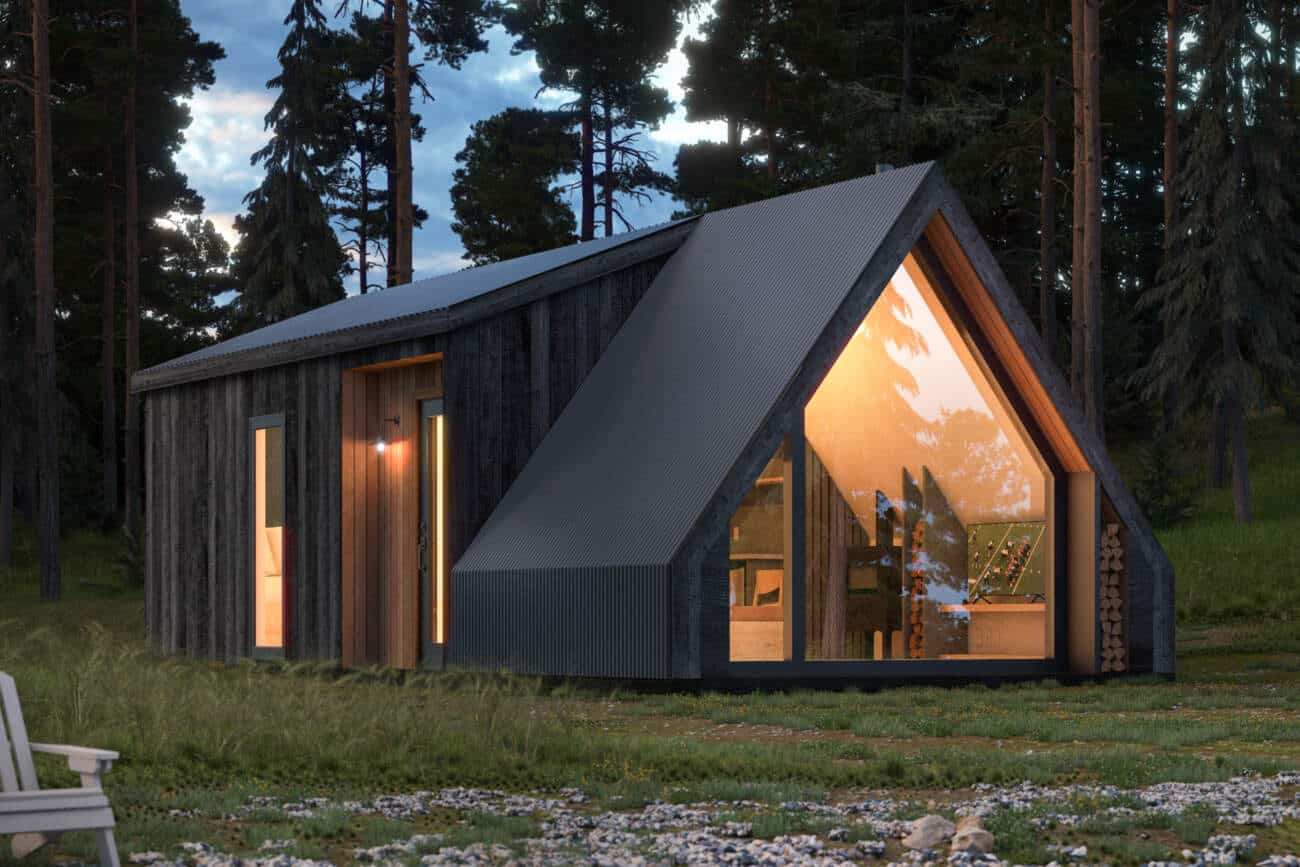
The regulations for tiny homes in New Hampshire can vary significantly between counties and municipalities. While some areas are more accommodating, others may have stringent restrictions or outright bans. It is challenging to list specific counties that entirely do not allow tiny homes, as the rules are often determined by individual towns and cities within each county.
- Grafton County
- Carroll County
- Coos County
- Sullivan County
These counties do not have zoning ordinances, which means there are no specific regulations prohibiting tiny homes, but they also do not have any specific regulations allowing them
Cities/Towns That Don’t Allow Tiny Homes in NH

New Hampshire’s approach to tiny homes varies significantly by municipality, with some cities and towns being more restrictive than others. Although tiny homes are not outright banned in the state, many local zoning laws and building codes create challenges for their establishment.
Some Cities and Towns with Restrictions
- Peterborough
- Hampton Falls
- Hanover
- Warner
Tiny Homes That Are Allowed In NH
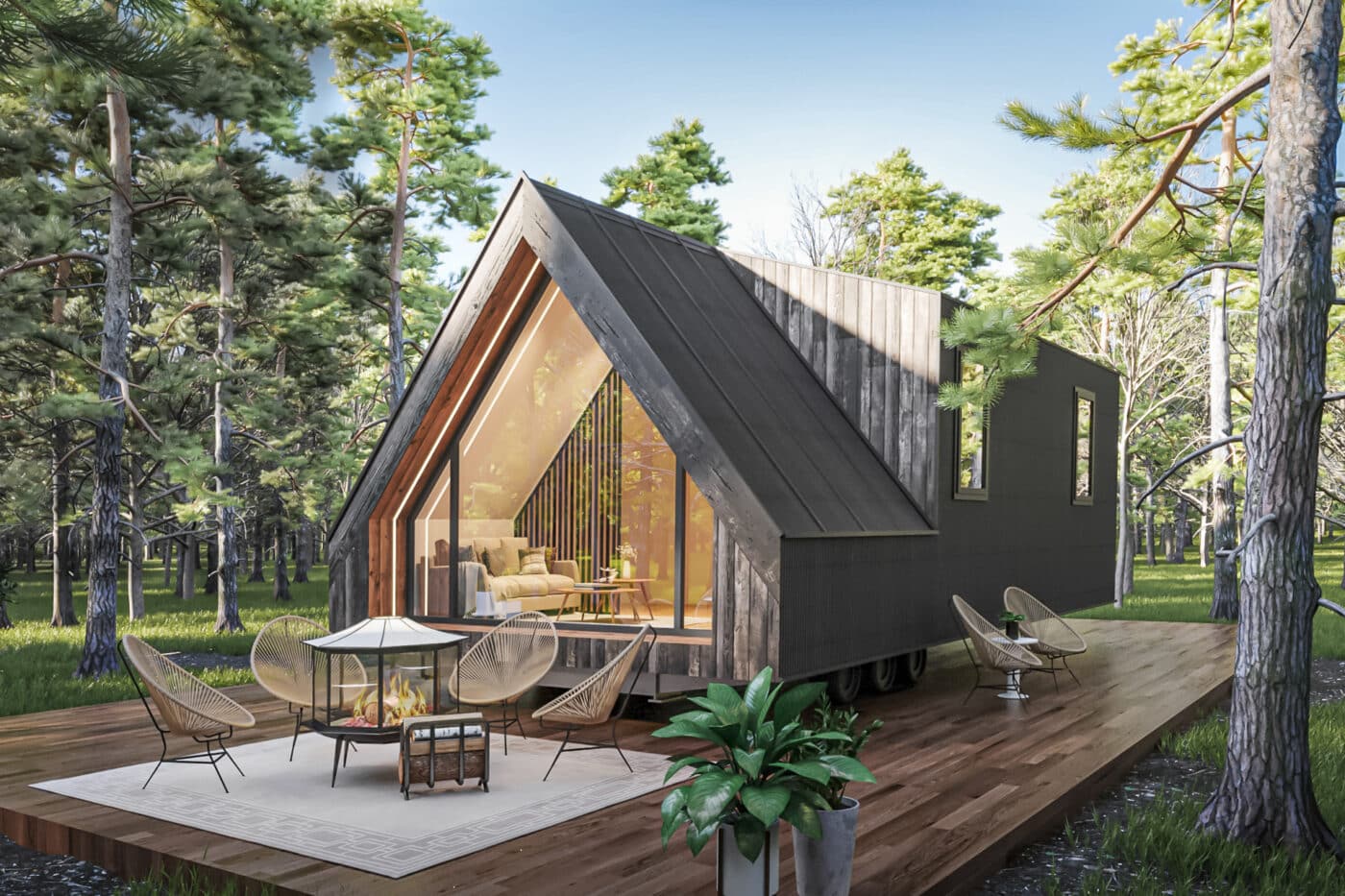
In New Hampshire, the types of tiny homes that are generally allowed include:
- Tiny Homes on Wheels (THOWs): These are tiny houses built on a trailer with wheels and are often considered recreational vehicles (RVs). They may be allowed in RV parks, campgrounds, or specific zoning areas that permit RV living.
- Permanent Tiny Homes: Tiny homes constructed on a foundation and adhering to local building codes may be allowed in specific residential zones. These homes are required to comply with the same safety, zoning, and utility standards as other residential buildings.
Do You Need a Permit for a Tiny Home in NH?

Yes, you generally need a permit for a tiny home in New Hampshire.
The specific requirements can vary based on the type of tiny home and the local regulations in your municipality. Here are some common types of permits you may need:
Building Permit:
- Required for tiny homes built on a permanent foundation to ensure compliance with local building codes and safety standards.
Zoning Permit:
- Needed to confirm that the tiny home complies with local zoning regulations, such as land use, setbacks, and minimum lot size requirements.
Accessory Dwelling Unit (ADU) Permit:
- If the tiny home is being used as an ADU on the same lot as a primary residence, you may need a permit specifically for ADUs, which could have its own set of regulations.
Permits for Tiny Homes on Wheels
- Tiny homes on wheels are often classified as recreational vehicles (RVs) in NH. They typically require a license, registration with state and local agencies, and an inspection seal indicating compliance with safety, structural, and energy efficiency standards. Permits are needed to legally park a tiny home on wheels, as they are generally not allowed for permanent year-round living unless specific local ordinances permit it.
Are There Any Tiny Home Communities in NH?
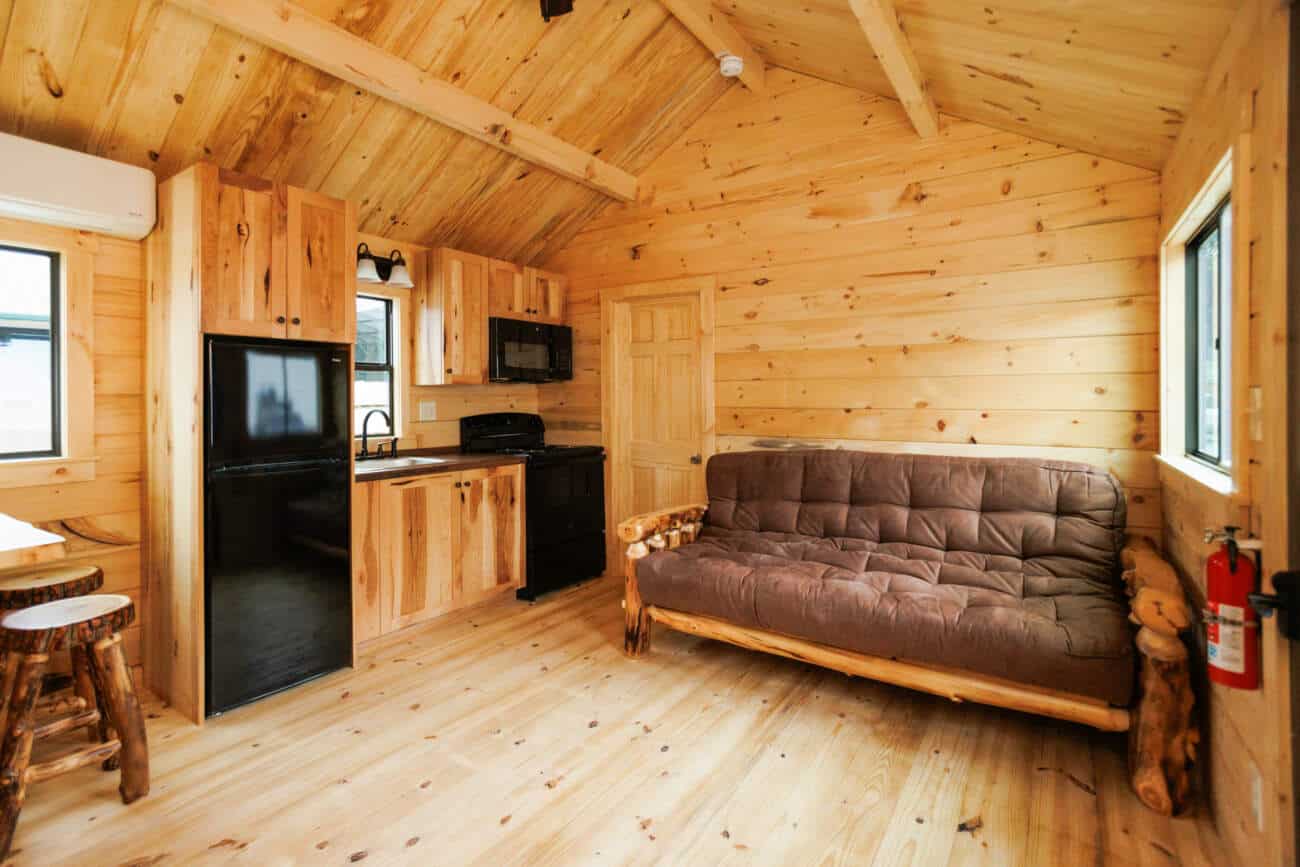
Yes, there are a few tiny home communities in New Hampshire! Here are a couple you might find interesting:
Tuxbury Tiny House Village: Located at the Tuxbury Pond RV Resort in South Hampton, this village offers a unique glamping experience with tiny homes ranging from 180 to 275 square feet. The community features amenities such as access to Tuxbury Pond, a pool, and nearby attractions like farms and wineries
Nubanusit Neighborhood & Farm: This intentional community includes 29 homes and focuses on sustainability and community living. The neighborhood supports a thriving farm and has a diverse age range among its residents, promoting a collaborative living environment
Tiny House Pocket Neighborhoods: The Tiny Home Industry Association mentions the concept of pocket neighborhoods, which consist of clustered tiny homes around shared spaces. While specific examples in NH are not detailed, this model is gaining interest for community-oriented living
These communities provide various options for those interested in tiny home living, emphasizing sustainability, community interaction, and a simpler lifestyle.
Why Park Model Tiny Houses Are Booming in Popularity Across NH and the U.S.
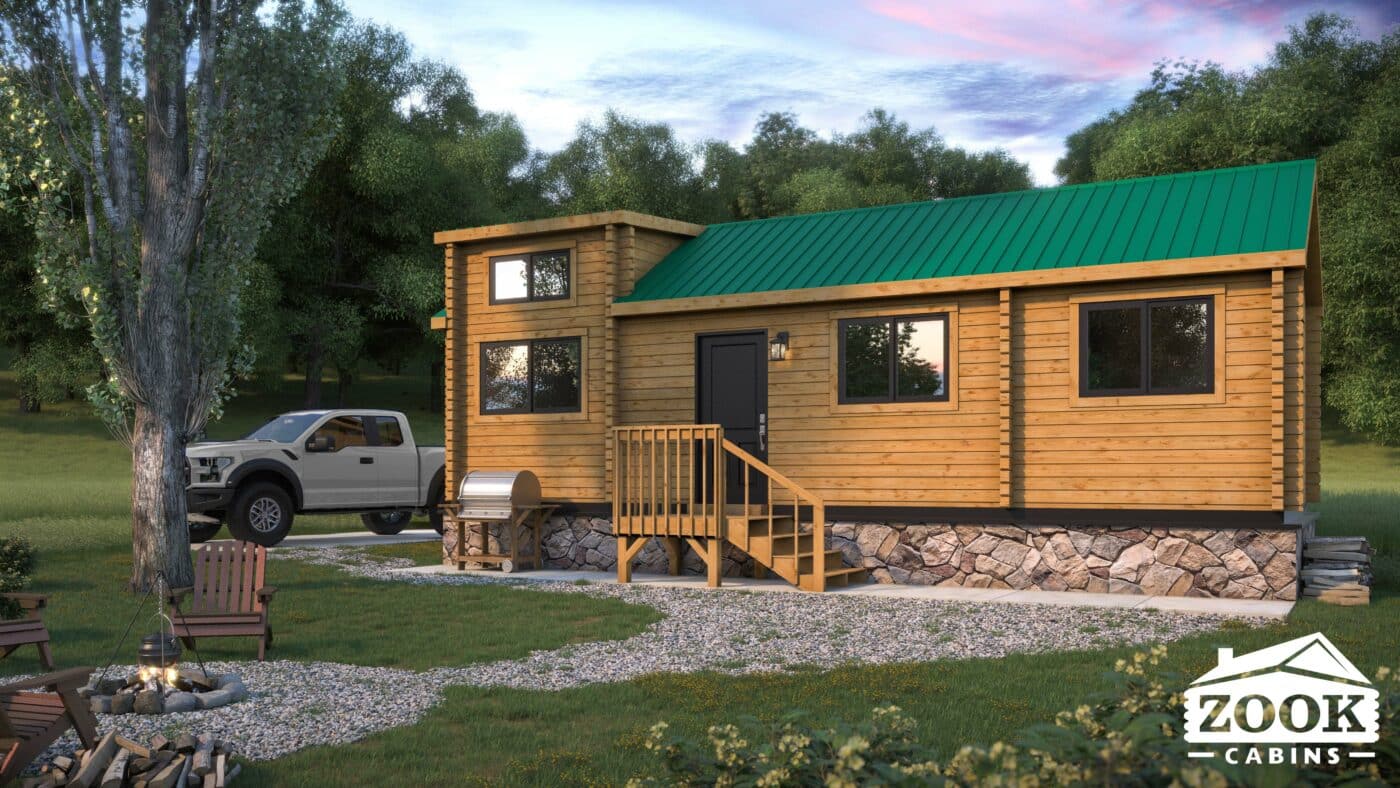
The popularity of park model tiny houses is surging across New Hampshire and the broader U.S. for several compelling reasons:
- Affordability: Park model tiny homes offer a cost-effective housing option, with prices ranging from $30,000 to $130,000. They provide a way to own property without the burden of a large mortgage, making them ideal for those facing high traditional housing costs.
- Minimalist Lifestyle: Tiny homes attract those seeking a minimalist lifestyle, promoting decluttering and a focus on essentials. This aligns with trends toward sustainability and reduced consumption, fostering a more intentional and fulfilling life.
- Flexibility and Versatility: Park model tiny homes are versatile, ideal as vacation rentals, guest houses, or primary residences. They suit different lifestyles, from retirees downsizing to young families needing affordable housing.
- Eco-Friendly Living: These homes are more energy-efficient than traditional houses, leading to lower utility bills and a smaller carbon footprint, appealing to those focused on sustainability and climate change.
- Community and Lifestyle: Tiny home communities like Tuxbury Tiny House Village provide a strong sense of belonging and community. Residents benefit from shared amenities, social interactions, and a supportive environment, making for an enhanced living experience.
- Regulatory Support: House Bill 588 seeks to clarify and support tiny homes in New Hampshire, making it easier to build them in residential areas and reducing regulatory barriers.
- Desirable Locations: New Hampshire’s stunning landscapes, with skiing and hiking opportunities, low crime rates, and no sales tax, make it ideal for tiny home living.
Park Model Regulations in NH
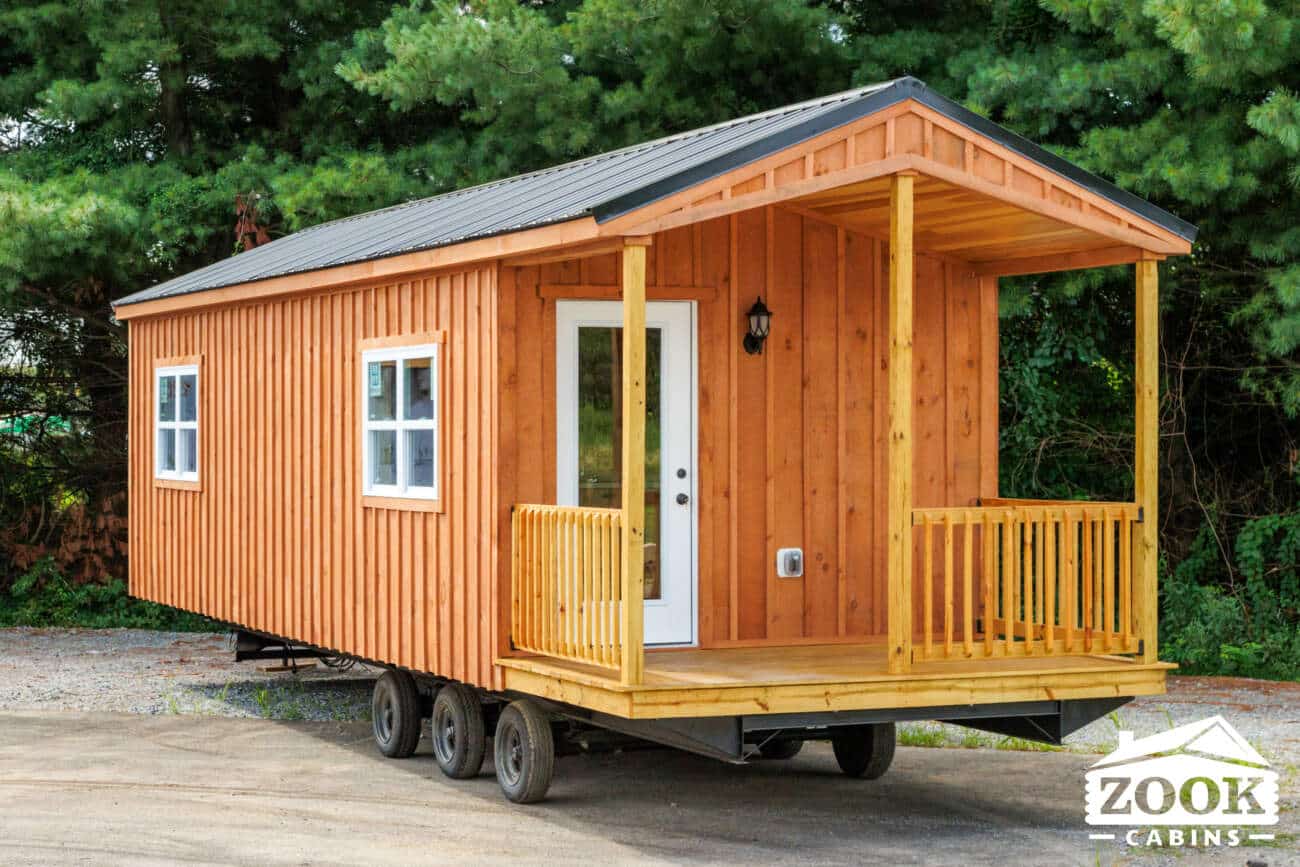
Park model homes in New Hampshire are regulated primarily as recreational vehicles (RVs), which means they must adhere to specific standards and regulations.
Here are the key points regarding park model regulations in NH:
RVs Regulations: Park model homes are legally classified as RVs rather than traditional mobile or tiny homes. This classification requires them to meet the state’s RV registration criteria, which includes size and mobility standards.
Size Limit: Park models must not exceed a maximum size of 400 square feet to maintain their classification as park models. Anything larger is no longer considered a park model.
Foundation Requirements: Although park models can be placed on blocks or engineered wood, they should remain connected to their wheels/trailer base to retain their classification. It’s advised to place them on a gravel or concrete pad rather than bare ground to prevent settling and wear on the foundation.
Local Zoning Compliance: Local municipalities may have additional regulations regarding where park model homes can be placed, especially concerning zoning laws that dictate whether full-time living is permitted. It’s essential to check with local authorities for specific zoning requirements.
Frequently Asked Questions About Tiny Home Regulations In NH
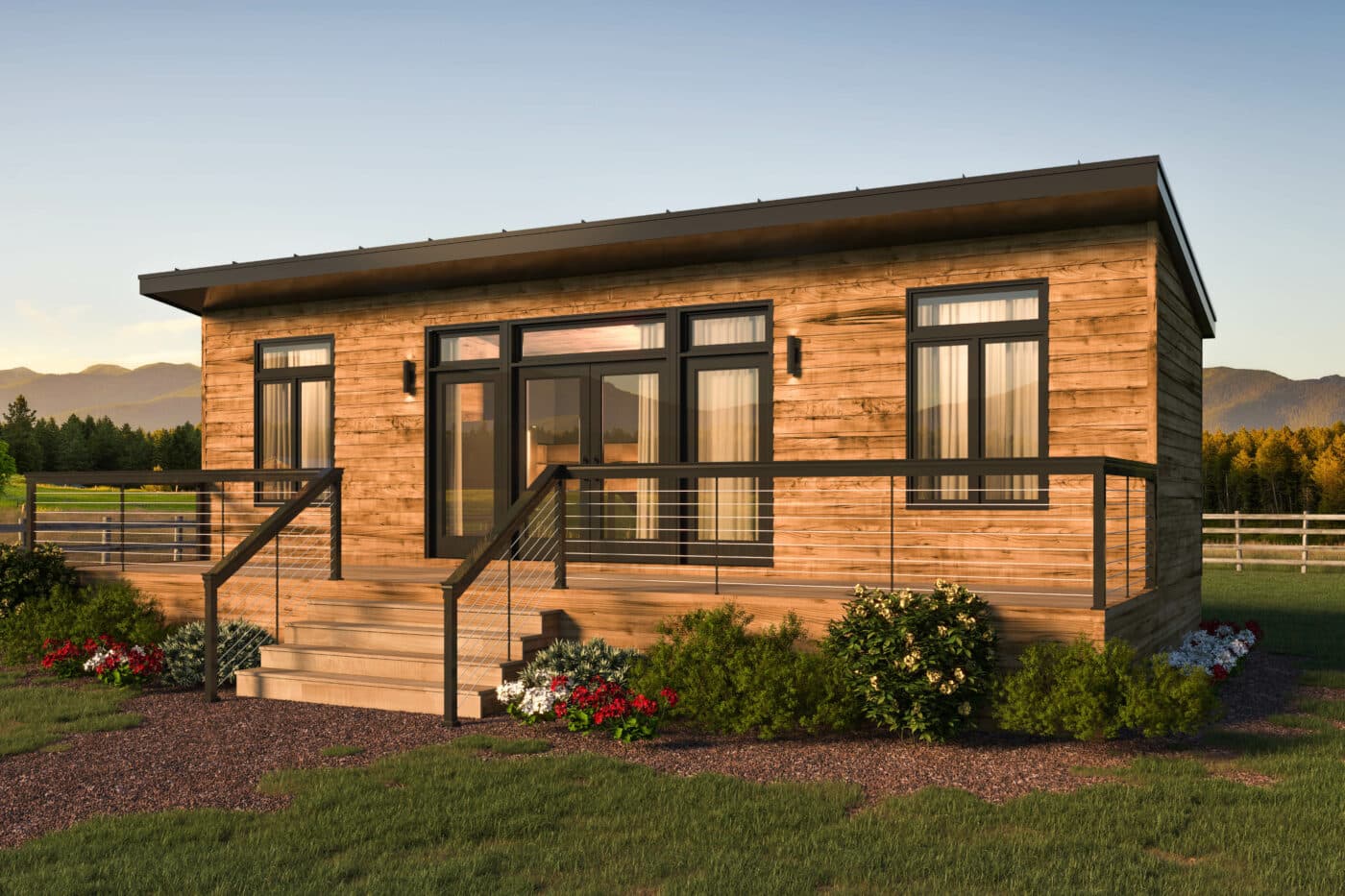
What are the rules for tiny houses in New Hampshire?
In New Hampshire, regulations for tiny houses vary by municipality, with local zoning laws and building codes dictating their placement and usage. Generally, tiny houses must comply with the New Hampshire State Building Code, including safety and occupancy standards. Some areas may allow tiny homes as accessory dwelling units (ADUs) or in designated tiny home communities, while others may have restrictions on size, foundation type, and year-round living. It’s crucial to consult with local zoning offices to ensure compliance with all relevant regulations before constructing or placing a tiny home.
What is the smallest house you can legally build?
In New Hampshire, there is no specific minimum size requirement for homes, including tiny houses, as long as they comply with local zoning and building codes. However, to avoid being classified as manufactured homes, tiny houses must be under 400 square feet. Additionally, tiny homes built on a permanent foundation must meet the standards set by the 2015 International Residential Code (IRC) and include necessary utilities like plumbing and electrical systems.
Does a tiny house need a foundation?
Foundations such as gravel or concrete slaps are common options. Each type has its benefits, such as improved utility access and increased property value. However, it’s essential to comply with local zoning and building codes, as these regulations can dictate the type of foundation required and the overall legality of the tiny house in the chosen location
Are Park Model Tiny Homes A Good Investment in NH?
Investing in park model tiny homes in New Hampshire can be a good decision, particularly for those seeking affordable housing options or vacation properties. These homes are classified as RVs, allowing for flexibility in location and use. They typically offer durability and require minimal upkeep, lasting 30 to 50 years with proper care. The investment potential is enhanced by New Hampshire’s beautiful landscapes, making park models attractive for recreational use or as short-term rentals in popular areas like Squam Lake or North Conway
Where Can I Buy A Park Model Tiny House In NH
Zook Cabins is a well-known builder of high-quality, customizable park model tiny homes based in Atglen, Pennsylvania. They have gained a reputation for their craftsmanship and attention to detail.
- The Alpine: A compact yet spacious model featuring a loft area, full kitchen, bathroom, and a cozy living space.
- The Nook Family: Designed with campground owners in mind, the Nook Family Park Model is the perfect retreat for families seeking comfort and adventure in nature.
- The Rockwood: Built to meet and surpass ANSI 119.5 Standards, this home also carries an RVIA Seal, a testament to its quality and craftsmanship.
- The Aspen: The Aspen Log Cabin is a log stack style park model home loaded with features that can create a truly special experience.
Explore other Zook Cabins park models
What Is The Process Of Building a Park Model in NH?
- Consultation: Zook Cabins starts with a consultation to understand your needs and preferences. They provide guidance on design options and features.
- Design and Customization: You can customize the floor plan, materials, and finishes. The team works with you to ensure the design meets your expectations.
- Construction: The tiny house park model are built in their controlled environment, ensuring quality and consistency throughout the build process.
- Delivery and Setup: Once completed, the tiny house park model is delivered to your location and set up by a professional team, ensuring everything is in place and functioning correctly.
Is Living In A Tiny House Comfortable And Practical?
Living in a park model tiny house can be both comfortable and practical for many people. These homes are designed to maximize space efficiency, often featuring multi-functional furniture and clever storage solutions. The reduced size can simplify maintenance and lower utility costs, making them an economical choice.
What Are Utility Bills Like In A Tiny House?
Utility bills in a tiny house are much lower than in a traditional home. The smaller size requires less energy for heating and cooling, reducing electricity and gas bills. Water usage is also lower, decreasing water and sewer costs. Many park model tiny homes use energy-efficient appliances, further cutting expenses. Overall, tiny houses are an economical choice for utility bills.
what do other states say about tiny living?
Each state is different in what it will and will not allow for tiny living. Tryign to figure out what each state will or won’t allow used to be really challenging to figure out. However, here a Zook Cabins we have created a guide for every state that we deliver to. So take a look at the table below and find the state where you want to.
